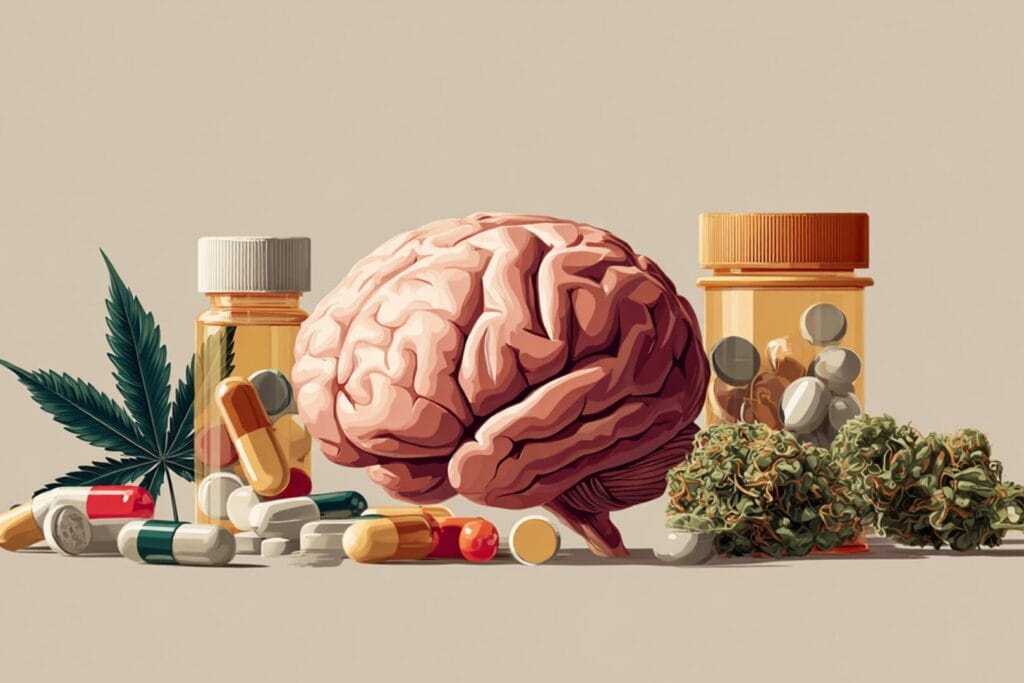Recovery is a journey that extends far beyond the doors of a detox center. For individuals battling addiction, the process of rebuilding trust in relationships can be both challenging and rewarding. At San Diego Detox, a leading dual diagnosis detox center in Lakeside, CA, we understand the importance of healing your body and your connections with loved ones. This article will explore strategies and insights on rebuilding trust in relationships after addiction.
Understanding the Impact of Addiction
Before delving into the steps to rebuild trust, it’s crucial to recognize addiction’s profound impact on relationships. Addiction often leads to:
- Deception and Broken Promises: Addicts may lie, steal, or manipulate their loved ones to fuel their addiction.
- Emotional Distance: Substance abuse can create emotional distance, leading to strained relationships.
- Loss of Reliability: Consistency and reliability may diminish as addiction takes precedence.
Seeking Professional Help
One of the first steps towards rebuilding trust in relationships is seeking professional help from a detox center like San Diego Detox. Dual-diagnosis detox programs address both addiction and underlying mental health issues, providing a solid foundation for recovery and relationship repair.
Open and Honest Communication
Effective communication is key to rebuilding trust. Consider the following strategies:
- Active Listening: Show empathy by listening attentively to your loved ones.
- Express Regret: Apologize sincerely for past actions and acknowledge the pain you’ve caused.
- Share Your Recovery Journey: Keep loved ones informed about your progress, setbacks, and accomplishments.
Establishing Boundaries
In recovery, setting boundaries is essential to maintain trust. Clear boundaries create a sense of safety and predictability. Discuss boundaries openly with your loved ones and consistently respect them.
Rebuilding Through Actions, Not Words
Actions speak louder than words. To rebuild trust, demonstrate your commitment to recovery through consistent and responsible behavior:
- Stay Sober: The most significant action you can take is to remain substance-free.
- Seek Therapy: Continue therapy and counseling to address underlying issues.
- Make Amends: If appropriate, make amends to those you’ve harmed during your addiction.
Patience and Understanding
Rebuilding trust takes time, and setbacks are possible. Understand that your loved ones may still have doubts and fears. Be patient and empathetic as they navigate their healing process.
Family Therapy and Support
Consider involving your loved ones in therapy sessions. These sessions provide a safe space to address lingering issues, improve communication, and foster understanding among family members.
Self-Care and Relapse Prevention
Prioritize self-care and relapse prevention to maintain trust. Take care of your physical and mental well-being, and have a solid relapse prevention plan.
Rebuilding trust in relationships after addiction is a challenging but worthwhile endeavor. With professional help from a dual diagnosis detox center like San Diego Detox, open communication, and consistent actions, you can mend and strengthen the bonds with your loved ones.
Remember, healing takes time, so be patient and committed to your journey of recovery. You have the power to rebuild trust and create healthier, more fulfilling relationships.
FAQS
What is Dual Diagnosis and Why is it Important in Detox?
Dual diagnosis refers to the presence of both a substance use disorder and a mental health disorder. It’s crucial in detox because it ensures that both addiction and underlying mental health issues are addressed simultaneously. Ignoring mental health concerns can hinder recovery progress.
How Long Does the Detox Process Typically Take?
The duration of detox varies depending on factors like the type and severity of addiction, individual health, and the detox protocol used. In general, detox can last from a few days to a couple of weeks. However, the full addiction recovery process may take several months or more.
What Types of Therapies and Support Are Offered in Dual Diagnosis Detox Programs?
Dual diagnosis detox programs offer a range of therapies and support, including individual counseling, group therapy, cognitive-behavioral therapy (CBT), medication management, and holistic approaches. These programs are tailored to meet the specific needs of each individual.
How Can I Support a Loved One Going Through Dual Diagnosis Detox and Recovery?
Supporting a loved one in dual diagnosis detox and recovery involves providing emotional support, attending therapy sessions or family counseling, educating yourself about addiction and mental health, and being patient and understanding during their journey. Avoid enabling behaviors and encourage healthy choices.
What Happens After Detox in Dual Diagnosis Treatment?
After detox, individuals typically transition to a comprehensive addiction treatment program that addresses the underlying mental health issues alongside addiction. This may involve inpatient or outpatient rehab, ongoing therapy, relapse prevention planning, and support groups. The goal is to achieve long-term sobriety and mental wellness.
Resources
https://www.niaaa.nih.gov/alcohols-effects-health/overview-alcohol-consumption/what-standard-drink
https://www.drugfreeworld.org/drugfacts/alcohol/short-term-long-term-effects.html
https://www.ncbi.nlm.nih.gov/pmc/articles/PMC2913110/
https://www.webmd.com/mental-health/addiction/understanding-alcohol-abuse-symptoms






